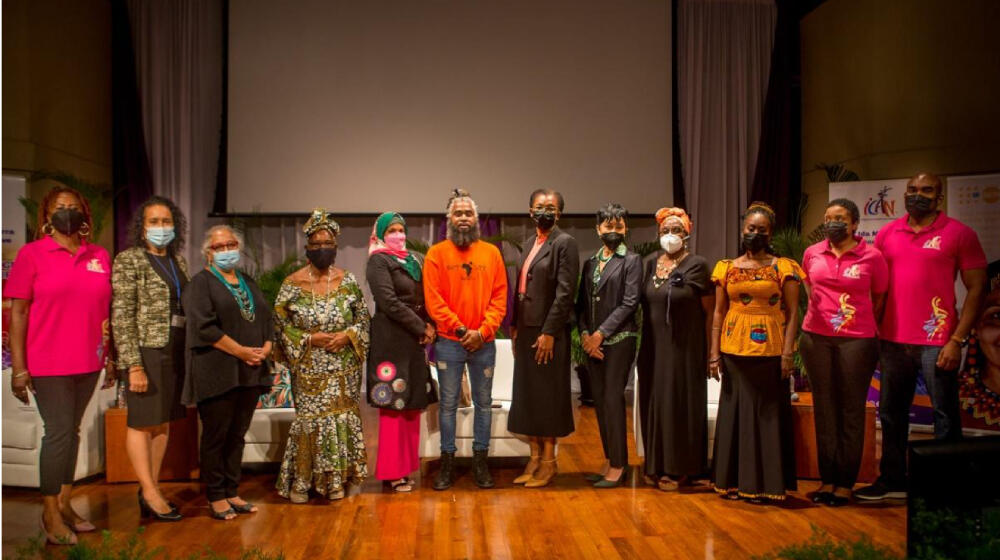A Conversation about Faith and GBV was held on May 26, 2022 and brought together leaders from seven (7) major faith groups across Trinidad and Tobago under the Spotlight Initiative, a United Nations Initiative, which receive generous support from the European Union. Discussions centered around challenges faced by faith-based organisations in addressing GBV as well as possible solutions, including the need for increased funding for shelters, more safe spaces for women and men, teaching key values including tolerance and respect for women and girls, and ceasing to continually advise victims to stay in abusive relationships instead of leaving.
The hybrid conversation, which was co-moderated by Mr. Dara Healy and Mrs. Aurora Noguera-Ramkissoon, and led by Fazila Cherie Ackbarali of the Anjuman Sunnat ul Jamaat Association (ASJA), Mother Majorie Anderson of the National Council of Orisha Elders, Pastor Ruslyn Baptiste-Farfan of the South Caribbean Seventh Day Adventists Church, Abbess Mother Superior Germaine Jordan - Council of Spiritual Baptist Churches, Ms Leela Ramdeen of the Roman Catholic Archdiocese of Trinidad and Tobago, Pandita Dr. Indrani Rampersad, Hindu scholar; and Reverend Dr. Shelly Ann Tenia - Anglican Diocese of Trinidad and Tobago.
Contributions to the discussion were also made by Mr. Sanjin Soldatic, Deputy Ambassador of the European Union to the Republic of Trinidad and Tobago; Ms. Alison Drayton, Director, UNFPA’s Sub-Regional Office in the Caribbean and Spotlight Initiative National Champions Mrs. Sharon Clark-Rowley and Mr. Muhammad Muwakil.
In addressing faith-based leaders, Mr. Soldatic stated that the European Union recognizes “the importance, of your support to assist in developing solutions to address family violence, as a major stakeholder of this Spotlight Initiative.”
Ms. Alison Drayton, Director of UNFPA’s Sub Regional Office, highlighted that according to UN Women’s datahub “Caribbean Women Count: Ending Violence against Women and Girls” violence against women is endemic with 46% of women in the five Caribbean countries that form part of the study having experienced at least one form of violence. She further noted that 30-60% of health care and educational services in developing countries are provided by faith-based organizations and that leaders of faith and interfaith based can be critical catalysts for change in influencing and transforming cultural behaviours, perceptions and attitudes around GBV. This is vital to achieving our common goals and targets embodied within the SDGs and the ICPD Plan of Action.
Everyone present agreed that there was need for further social and cultural change in how we socialize men and boys, as well as women and girls, if violence against women and girls and family violence are to be eliminated. Other solutions shared included the need for greater collaboration between faith-based bodies, the state and civil society, and increased access to training and sensitization campaigns on GBV, specifically customized and targeted toward faith-based and spiritual bodies.
The event was coordinated by implementing partner, the Ida Marie Guerra Indigenous Creative Arts Network (ICAN), at the Cipriani College of Labour and Cooperative Studies in Valsayn, Trinidad.


